As Senior Director of Movement Building at Teach For India, IIITH alumnus Ashwath Bharath’s work lies in harnessing the intellectual capital of lakhs of under-served rural children, leveraging ed-tech, partnering with government institutions and building educational leaders, who will drive the ‘India Shining’ narrative.
The change-maker pegs his specialisation as fostering leadership in education, “required for an India, free of poverty and filled with love, in service to self, others and the nation”.
Ashwath’s life work has been to reimagine the building blocks for foundational educational opportunities in marginalised communities. When the young visionary chose to join the 2-year Teach For India (TFI) Fellowship Program, little did he realise that he would be creating a community of like-minded trailblazers!
All I really need to Know, I learnt in kindergarten
Teach For India (TFI) is one of the larger nonprofit organisations in India’s education and social sector. While his early work at TFI focused on critical areas of primary and secondary education, today he heads the movement-building segment as an architect of an intellectual superstructure, comprising of alumni communities and teachers’ collectives, who work as drivers of social change.
The IIITH alumnus was nominated among 2/3 Fellows nationally for transformational impact on his students. His classroom practices were documented to train future Fellows. Till recently, he headed TFI’s online teacher training platform Firki and coordinated with partner organisations to consolidate inputs for the NEP drafting committee and Niti Aayog.
On IIIT Hyderabad and his destiny
“I was born and raised in Hyderabad,” says Ashwath, who completed his schooling from St. Patrick’s High School and joined Narayana Junior College in Secunderabad to prepare for the smorgasbord of Indian competitive exams. Serendipitously, he would attend coaching classes, led by ex-IITians in Keyes’ High school, which would unlock his love for learning and set him on his current path.
At the height of the biotech hype, Ashwath chose to pursue biotechnology from Malla Reddy Engineering College, thanks in part to his father, who came from a pharmacy background. Ashwath was among 33 students from across India selected for CCMB’s summer internship. “In college, my friends and I would have intense conversations on society, politics and education, and I was determined to explore avenues for social betterment”.
Not inclined to study abroad, Ashwath jumped at the opportunity to join IIIT Hyderabad’s MS by Research program in Bioinformatics (2007-10). “This was one Indian institute which was offering academic opportunities in the manner of international universities, where you are not restricted to subjects related to your domain”. Being in that environment, meeting different kinds of students and faculty who were experimenting with their academic goals helped him to break away from the entrenched conditioning of the Indian schooling system and societal expectations.
He took courses in computer science, coding and an advanced quantum mechanics course offered by Prof. Harjinder Singh, popularly known as ‘Laltu sir’ on campus. “Under his guidance, I worked on the membrane proteins of SARS Coronavirus at CCNSB”. He recalls that it was invigorating to interact with faculty like Prof. Abhijit Mitra, Prof. Deva Priyakumar, Prof. Rajeev Sangal, Prof. Kamal Karlapalem, Dr. Nita Parekh, Prof. P J Narayanan, et al in an institute that fielded eminent speakers like President Abdul Kalam.
“My hostel experience was great fun, and I forged really close bonds. I was involved in organising campus events, the student parliament, the day-to-day functioning of the hostel, and faculty-student interactions. I was also involved in sports-related events in table tennis, cricket, and football, represented IIITH for inter-college basketball and helped set up the girls’ basketball team. We had Jeevan Vidya and experimented with sattvic food at the Yuktahar Mess. The juice shop had the best sitaphal milkshake that I’ve had”, he recalls. All kinds of different things were happening; movie screenings, games on the local area network, late night walks and conversations on student life, politics, work and movies.
“It was in IIITH that the idea of making better decisions as a collective really got tattooed in my imagination. I just needed to go through a fundamentally direct experience to understand things”, he explains.
“And that’s when I learnt about the SODEWS volunteer program from my mother”.
SODEWS
In 2011, Ashwath interned with SODEWS for 8 months. The nonprofit was run by Mr. Ramamurthy, a widely-travelled social thinker who brought his United Nations experience to running residential bridging schools in Yelagiri, a small hill station. These were government schools for first-generation school-goers from tribal backgrounds, where the classrooms were converted into sleeping quarters at night.
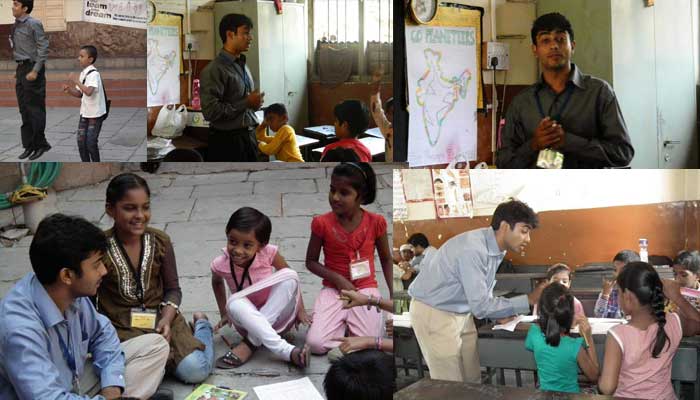
Being in a position to walk the talk was something significant. “I was working on women empowerment programs, health clinics, with government departments, and teaching children between ages 5 to 14, alphabets and numeracy by using fun activities as learning tools. We were experimenting with unconventional empirical methods to teach traditional subjects”.
“That’s really what got me into the Teach For India Fellowship”, notes Ashwath.
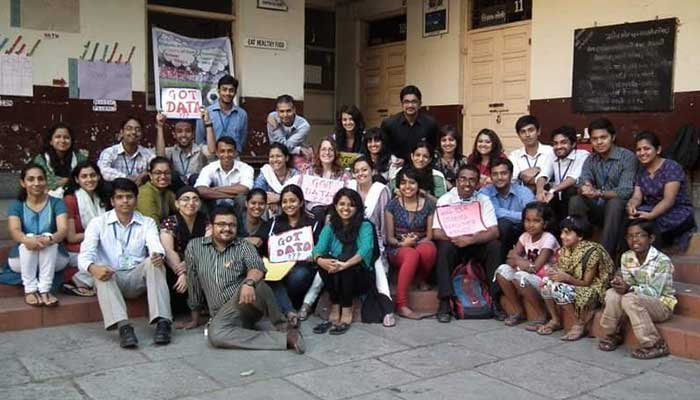
TFI Fellowship – Building educational transformers
“When I informed my parents about accepting the TFI Fellowship , I was made to talk to a lot of uncles and aunties”, laughs Ashwath. “However, everything flipped like a switch in the second year when my parents met my students. Over time, different achievements and the nature of our work has got them excited and today they are my biggest advocates and every little thing gets shared in family groups”.
The TFI Fellowship is their two-year leadership flagship program for building self-driven education leadership powerhouses . Over the last 15 years, there have been more than 5,000 TFI Fellows, with close to 70% continuing in the social sector, leading organisations and government initiatives, and reaching more than 50 million students.
The idea is that children from any background can do fantastic work if the right opportunities or environment are created. In 2012, Ashwath was assigned to a public-private partnership school run by the Akanksha Foundation in Pune, teaching grades 3 and 4 in his first year and grades 4 and 5 in the second year.
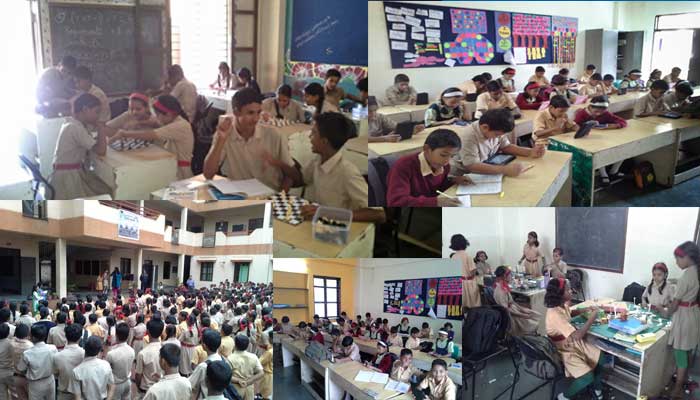
He worked on fund-raising to setup laboratories for maths and science and school libraries. Experiential project-based learning by designing a 3D city model and improving student grades to bring them on par with the national average of the ASSET exam were a few success stories. Ashwath took on the role of government representative (GR) for 3 years, collaborating with different state departments. “We signed a 10 year MoU with the Maharashtra government, that was a significant achievement and partnered with the state government to organise Shikshana Jatra, a three-day teaching festival”. One big spinoff was that a vibrant networking community of NGOs, entrepreneurs and government departments evolved out of this.
In 2017, Ashwath took the lead role in Firki, TFI’s online website that offers teaching courses, webinars, learning paths, online learning circles and curated resources, with a wide user base in Africa and South Asia. “Over 5 years, we have impacted 1.9 lakh teachers, built over 100 partnerships with colleges and state governments, participated as knowledge partners in the drafting of the National Education Policy and worked closely with the Niti Aayog”, he reports. “All of this has been possible because of the vision of the Founder-CEO Shaheen Mistri, an incredible leader in the education sector.”
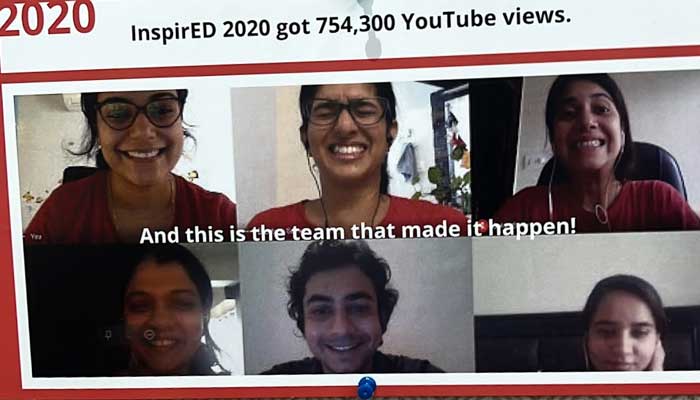
As TFI’s senior director for movement building, Ashwath now oversees six verticals; the government relations team, Firki, 5,000 strong Fellowship alumni, InnovatED, TFIx and Kids’ education revolution. The goal is to build 40,000 leaders to transform the lives of children across the country.
Love story with life that emerged
“My early influencers were my family” says Ashwath. “My mother and my maternal grandfather taught me the positive power of frugality and charity. My father came from a Tamil medium background from Polur in Tamil Nadu, taught himself English and moved into the professional world. I always believe that if he hadn’t done that, I wouldn’t have had the luxury to work in the social sector. My older sister would talk to me about our place among the stars, galaxies and the universe; which really pushed me into the philosophy of existentialism and tweaked my reading preferences in leadership, systems, change, history and mythology”.
In childhood, sports was a natural calling. “I played basketball, football, attended sports camps and even played cricket at the Under 16 level. But from Class 8, the pursuit of science took precedence. Music and road trips is something I love”, says the consummate music buff who always has classical or western music playing in the background. “My mother was a trained Carnatic singer who is actively involved in Hyderabad’s music circles”.
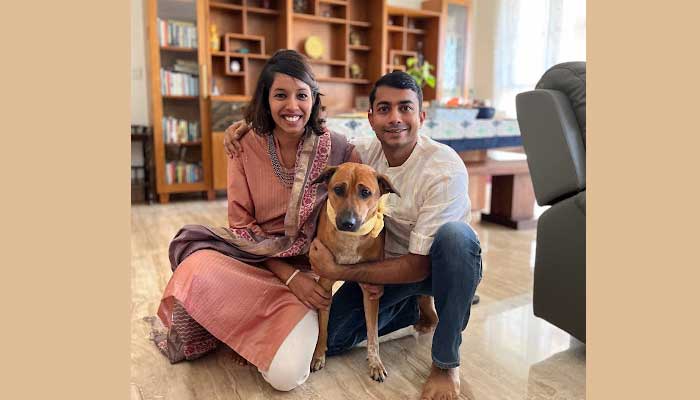
Ashwath would meet his future wife Swetha Balakrishnan (TFI Recruitment Director) at TFI. The young couple and their indie Cheekoo reside in Bangalore. Both love to wield the skillet and while Ashwath prefers Indian cooking, Swetha excels in Indian and International cuisine. “We enjoy trekking and did the Annapurna base camp a while back. I look forward to travel, but have also discovered that there is simple joy to be derived from daily routines. FOMO is a thing of the past and I’ve become one of those folks who sleep by 10.30pm and get up at the crack of dawn”, he muses.
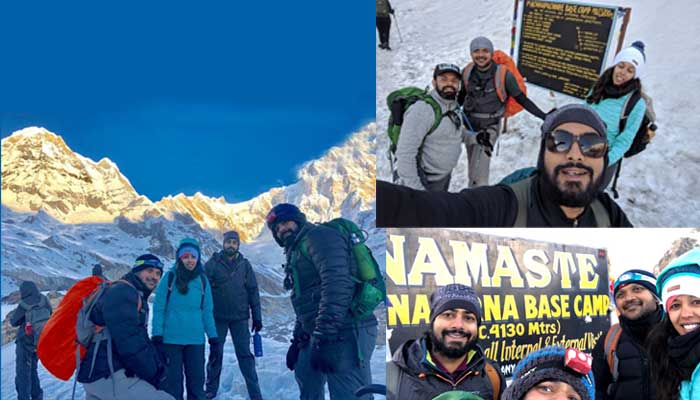
“My IIITH years remind me that education is not just for economic progress and unless an entire generation gets an excellent education, society is not positioning itself for growth”, he notes. “With reference to the education system, I realise that systems do not change unless the leadership in that sector changes. Previously, we were building institutions and systems to last. Now, we need to build them to thrive. If you’re a lifelong learner, today is the best time to be alive”.
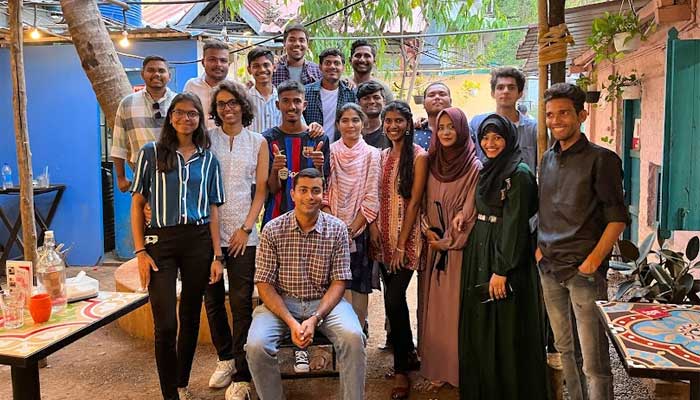
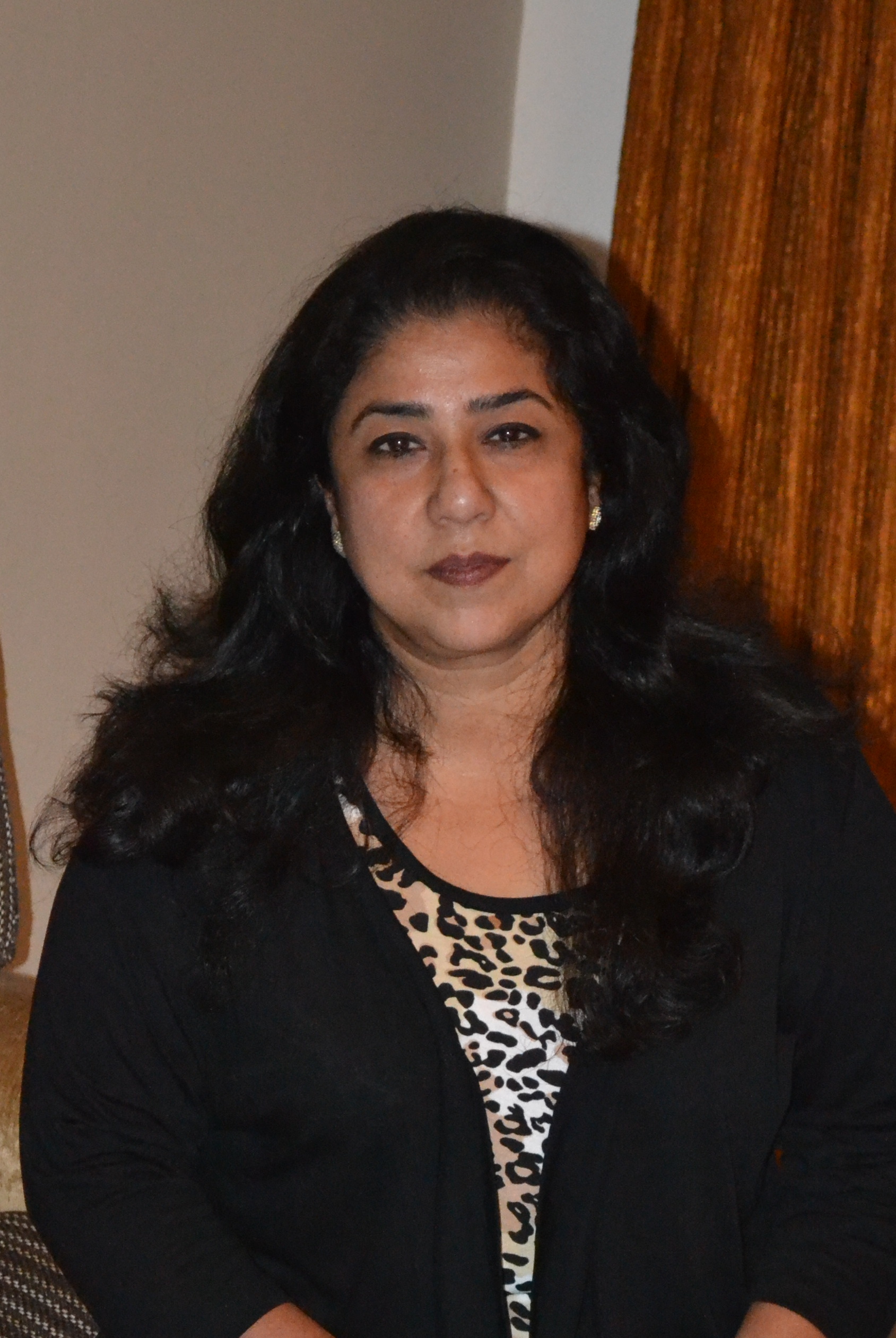
Deepa Shailendra is a freelance writer for interior design publications; an irreverent blogger, consultant editor and author of two coffee table books. A social entrepreneur who believes that we are the harbingers of the transformation and can bring the change to better our world.

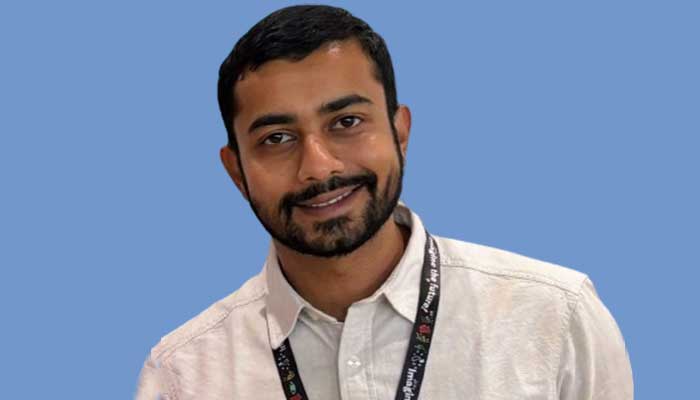
Very well articulated and passion comes first..proud of you dear
Rama bharath says:I am very proud of you,Ashwath
S.Sivaraman says:Excellent Mr Aswath….. Proud of you….
P k Srinivasan says: